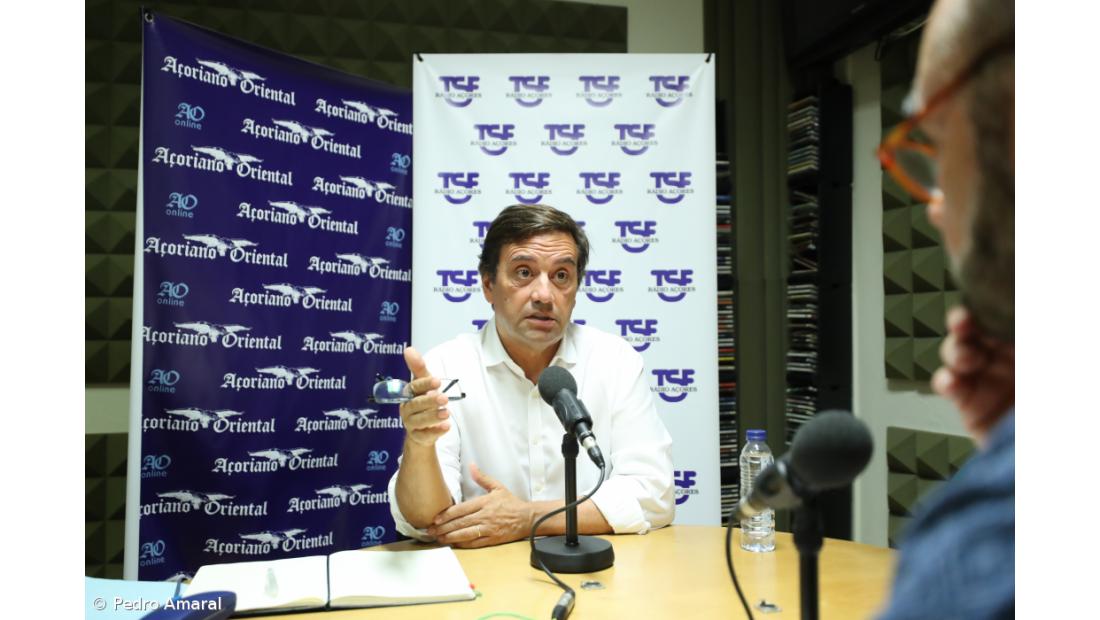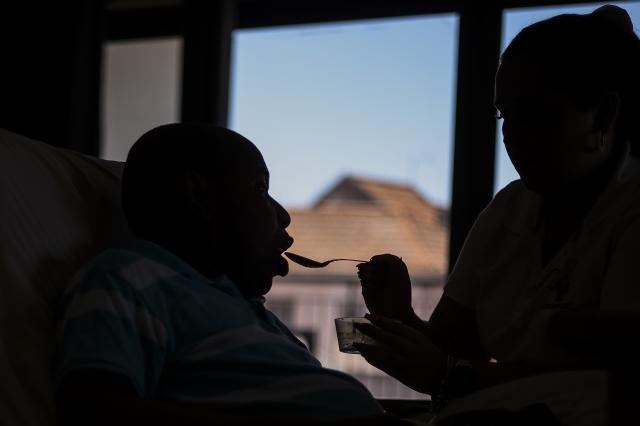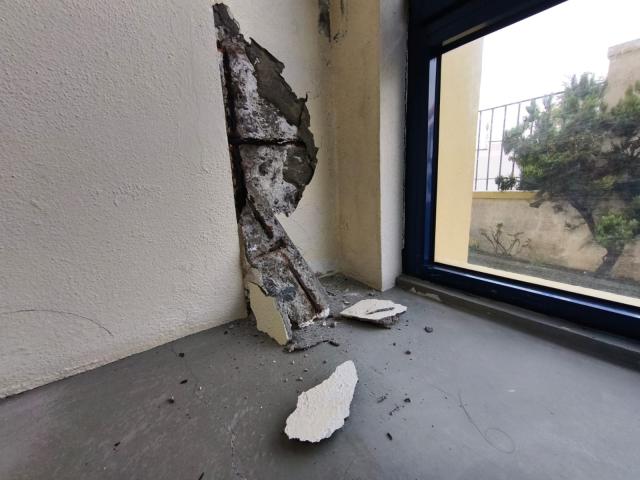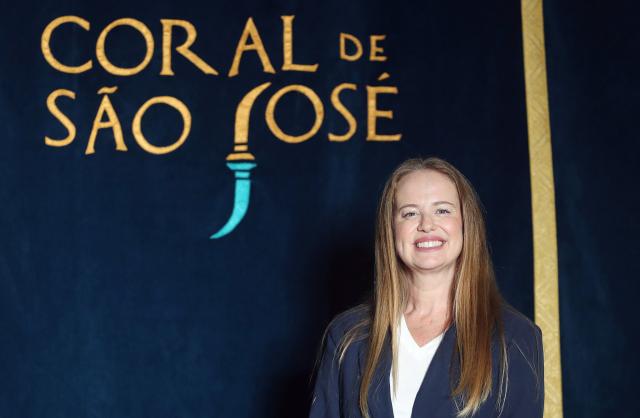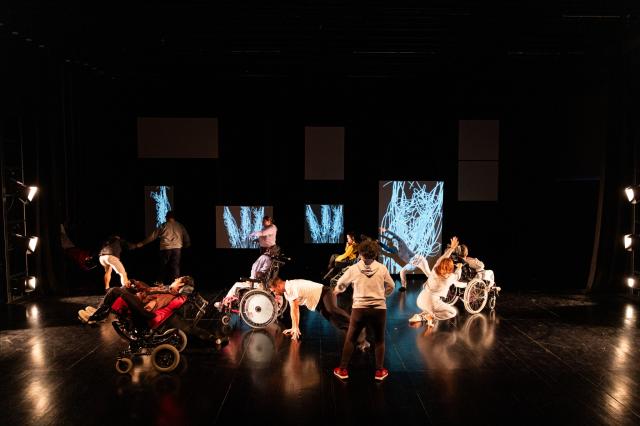When addressing the outlines of SATA's Strategic and Restructuring Plan with the President of the Government and parliamentary leaders, the Chairman said he intended to save 68 million Euros by 2025 by reducing operating costs and putting SATA to profit by the end of 2022. At this point, do you believe the company is able to meet the goal of making a profit this year?
The Restructuring Plan was drawn under a set of assumptions verified at the time; those assumptions remain with the exception of one, which is particularly significant: the cost of fuel.
If you look at the results of the first half of 2022, there are two things that are going quite well and one thing that is going very badly.
Regarding the things that are going quite well, the first one is revenue, which is exceeding the plan and in line with what we said at the outset: there is a huge revenue potential in the SATA Group.
The other part that is going very well is that of general costs. Typically, in these processes, what is on paper is very aggressive, so the implementation cannot follow... But in our case, things are going well, with costs accompanying - and even slightly below - the numbers on the Restructuring Plan.
So, what is going wrong that no one could anticipate? The cost of fuel, which is drastically higher than expected, could lead to a review, one which the European Commission must accept.
Therefore, higher revenue and savings in other costs may not compensate for the cost of fuel in 2022, in order to achieve balance or make a profit.
In fact, the plan approved in Brussels provides for this at the end of 2023, so we have a more aggressive plan internally, which provided for profit at the end of 2022.
Last week, we learned about the results of the SATA Group for the first half of this year. SATA has a consolidated revenue of 107.9 million Euros but was there profit resulting from this revenue?
The year 2022 was the first since 2020 when we were able to operate in normality; in the first half, traffic was slightly below 2019, but we are talking about 2 percent below, it is not a material difference...
And the revenue went up a lot more. But I would like to remind you that the results of 2020 and 2021 are a materialization of the ‘miracle’ that is us being here talking about SATA. I don't think people are aware of that. And it is very important to emphasize this: to be here talking about SATA, with SATA operating normally, is a ‘miracle’.
Let's see. By the end of 2019, the SATA Group closed its accounts with a negative equity of 230 million euros! And the way I illustrate this for my fellow SATA workers is to imagine that we were personally responsible for this debt: if each of us - who were 1400 at the time - sold everything we had and only kept the clothes on our backs, we would still owe the bank EUR 150 000! That leads anyone to despair... Therefore, to be operating in these conditions is already a ‘miracle’...
Do you see where I am going with this? We came to realize, shortly afterwards, that it was not 230 million, but 300, because there was a significant part that was not registered. So, the 150 000 euros that each of us owed to the bank turns out to be 200-something... Then came Covid, which apparently many people have already forgotten, but it paralyzed us for more than two years...
That is why, citing the European Commission's text, Covid conservatively cost the SATA Group EUR 215 million in lost revenue, of which we received 12.
So, with 230 million euros negative at the outset, another hundred and so that were not there and another 215 of lost revenues, what we are talking about here is a ‘miracle’.
Returning to the question of profit: how did SATA close the first half of this year in terms of consolidated net income?
If interest, depreciation, etc. are considered, the net result is still negative.
Without specifying a figure, can you tell us whether the net result is in line with your expectation or, on the contrary, it remains a matter of concern?
It is in line with the Brussels Restructuring Plan.
You were just talking about fuels, which were impacted by inflation. To what extent does this affect SATA's future? Can it really jeopardize the work that has been done so far?
In terms of risk, I don't think so, but it can significantly condition the situation. All these factors (related to inflation) will have an impact on demand, as well as on the availability and ability of people to go on holidays. Although in July and August we are not experiencing a traffic downturn, in the last four months traffic was not as strong as we would like it to be. Nevertheless, and because many people were able to save in the last two years and are now available to travel - Portuguese and foreign -, I believe that in 2022, with the data we have, traffic will increase 10 to 15% comparing to 2019.
I also believe the price of fuel, as it stands, is unsustainable in the long run, so, when we get back to normal - let's call it that -, Azores Airlines will be perfectly sustainable.
The SATA Restructuring Plan provides for the privatization of 51% of the capital of Azores Airlines. What stage has been reached regarding this privatization and when is it expected to be completed?
Those specifications are under the responsibility of the Regional Government (shareholder). The formal deadline is the end of 2025, but our recommendation is that the privatization of Azores Airlines should take place as soon as possible.
For the record, the Board of Directors is 100% in favor of privatization. And that has nothing to do with ideology. It has to do only with the fact that the SATA Group has enormous opportunities for growth, in the network, in maintenance, in training, in shared services, in handling and so on.
But as long as SATA/Azores Airlines remain public, the shareholder will never be able to capitalize on these growth opportunities. And why? Because there is a political agenda to manage and every time the government wants to invest another euro in SATA, there will be someone who says: what about this school, this hospital, and this road?
I understand it perfectly, but what it means is that SATA will not be able to grow. And if it does not grow it will wither and the path is inevitable: the company will disappear. An airline with eight planes operating on an open market has no way of sustaining itself in the long run.
Are the concerns expressed by trade unions about the future of workers in the process of privatizing Azores Airlines justified?
I do not think so. As I said earlier, and as I also told the unions, the Board of Administrators is in favor of privatization because it will generate jobs, growth, and wealth for all the players involved and what I anticipate is an open, transparent, and participatory process, in which everyone says what they have to say. My expectation is not that privatization is a good thing, but that we have to work for it to be a good thing. If this happens, it will be good for the workers in general and, being good for the workers, it is good for the unions.
In the past, the Regional Government's intrusion into the management of SATA has been widely criticized, an intrusion that is considered, in a way, to be responsible for the financial situation that the company has reached. Have any of your decisions been suggested by the current government?
No. There have been requests to assess two or three routes. We have done it and there are situations in which we say: ‘it makes no sense’. There are also situations that can make sense, under certain conditions. But if the route is clearly deficient, then we do not pursue it. And that's that. There's no discussion about that.
Our goal is to put SATA and mainly Azores Airlines in the right place and I think the shareholder, the Regional Government, is aware and respectful of this in general.
Regarding the cargo plane, which SATA will operate through the transformation of a Dash aircraft, what is the cost of this operation?
The cost can range from very simple and inexpensive to a very complex and expensive solution. We don't want to go there, of course.
This subject is still an incognito. The easiest, cheapest, and more flexible option is to take one of the current Dash planes, during the winter, and turn it into a freighter, as has already happened in the pandemic. Today, there are kits to do this, and it does not represent any problem.
We can make this adaptation and see what happens. We already had the experience of operating during the pandemic and we expect this to be an incentive to the development of local production and an incentive to export from the Region. Therefore, the market can reach much higher levels than those we know today, and, with an adjusted tariff, things can balance out.
Finally, regarding SATA Air Açores, which makes the inter-island connections, is the current fleet ideal or will more aircraft be needed, given the increased tourist flow that has been registered (and also the Azores Tariff at 60 euros)?
Since last week, we have yet another aircraft, which is an obligation of the specifications, because when demand and waiting lists exceed a certain level, we are obliged to add more capacity. And if the growth rate of inter-island traffic continues in 2023, but maybe in 2024, instead of seven planes during the summer, we will need eight. But what we need, as a Region, is to work on sustained development outside the peak of summer.

